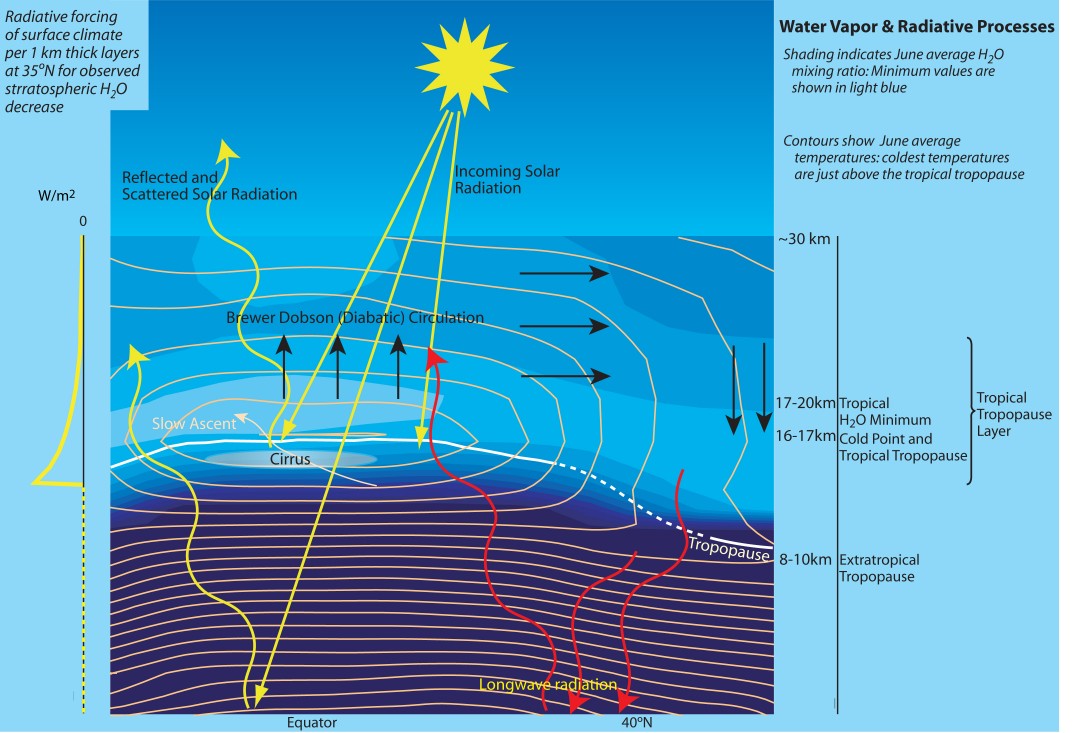Atmopshere Hot But Not Hotter; Politics: Very Much Hotter

In recent years the amount of research on the earth’s climate has multiplied. Slowly, pieces of the puzzle are being added. Thanks in great part to digital technology and satellites we have much more data than anyone in 1960 could have imagined possible. But the credibility battles grow bigger as more and more interest groups from science labs to company board rooms get involved.
A study just published indicates that earlier estimates of the carbon feedback loop were overblown. The self-reinforcing effects of the increase in atmospheric carbon dioxide are not likely to be as great as estimates as recent as 2008.
Now there’s research on global warming that finds a major role being played by water vapor in the upper atmosphere. The past decade has been the hottest on record. But during this past decade the warming trend has not been continuous. This new research says decreasing water vapor in the atmosphere has allowed some of the heat to escape. Water vapor itself is a greenhouse gas and helps trap heat so decreased water in the air lowers heat retention.
This study does not look at surface humidity but actually tracks water vapor at an altitude of ten miles where it has an even greater effect on the heat held in the atmosphere. Less water up there means less heat down here where most of us live.

Harsh winter weather is being used as example of global warming effects. Meanwhile one poll shows fewer Americans now believe climate change is happening. The connection between colder winter and climate change is way too subtle, and many Americans are now doubting any "expert" from climatologist to broker. The sinking popularity of global warming as a problem means it is far less likely that Congress will do anything. But it also means the EPA will be at the center of the political firestorm when and if it moves on greenhouse gas emissions from U.S. industry.
UN'S IPCC IS UNDER ASSAULT
Meanwhile the IPCC is having a hard time. Since its 2007 Nobel Prize and its continued efforts to get international action on global warming, the IPCC's credibility being assailed on many fronts. Admitting a factual error in their most recent detailed report has only fueled efforts to find further errors in that report.
The IPCC's opponents sense blood in the earth's warmer waters. The IPCC is now accused of using biased numbers on rain forest destruction by climate change. Expect all-out attempts to discredit the IPCC and its findings to continue and to get global publicity. This political fight involves billions of dollars of monthly income for countries like Russia and Saudi Arabia plus huge sectors of the global economy. We may find that Copenhagen was the final big effort by the IPCC which is could become politically radioactive and practically ineffectual. Some could say it's already proved itself untenable at Copenhagen where the U.S. brokered the only "deal."
All this means that cleantech companies need to find ways to sell their products and services as money-savers as more and more people come to doubt the earth's livability is actually at stake. ROI will be king in the realm of greentech as these research wars grind facts into soundbites and the mind numbs.